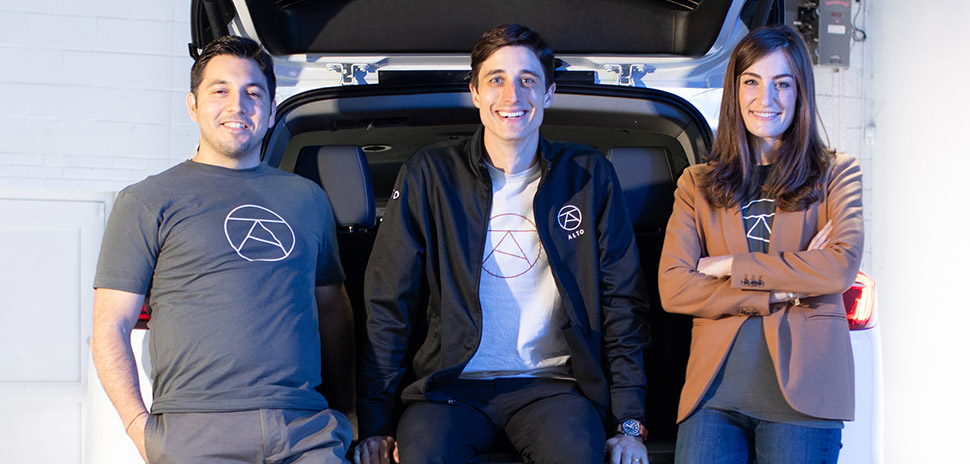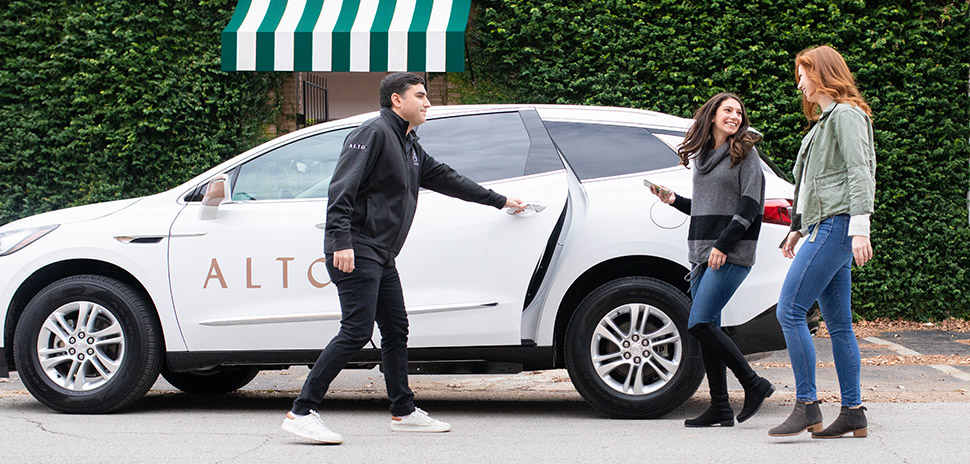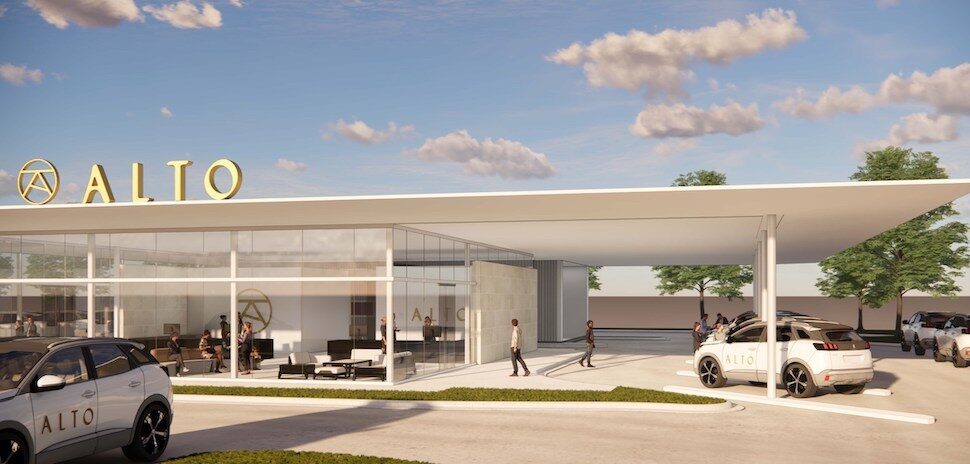Dallas gained its very own rideshare company back in 2018 when Alto hit the roads with its fleet of white, branded vehicles. Now, the startup is already ready to make its first expansion outside of its home base.
Starting Oct. 1, Houston residents will be able to book on-demand rides through Alto. The startup is currently offering pre-scheduled rides throughout the city and has a Houston Launch Waitlist for those interested in being inaugural members.
“Alto is thrilled to announce our expansion plans to Houston and offer the same clean, safe rideshare experience that’s revolutionizing the industry to this new market,” Will Coleman, founder and CEO of Alto, said in a statement. “We’re confident Houston residents will find Alto to be unlike any other rideshare experiences they’ve had to date, and find comfort in Alto’s leading safety and health precautions, as well as elevated rider experience.”

Will Coleman [Photo: Courtesy Alto]
In 2018, Coleman told Dallas Innovates he had plans to reach a national level by 2020. Though Houston is the first expansion outside of Dallas-Fort Worth, Alto has Waitlists for Los Angeles and Austin on its website.
The Uber and Lyft brouhaha accelerated Alto’s plans to enter the California market, which it hopes to do this fall, starting in Los Angeles and then San Diego. Service in San Francisco will probably begin in 2021. However, state regulators said it has not applied to operate here, a process that can take 90 days.
The San Francisco Chronicle recently identified three startups, including Alto and one established company, that say they comply with AB5, the state’s new gig work law.
The companies are “revving up to pounce if a ride-hailing void opens up,” according to the publication, and their approaches shed some light on the employee versus contractor discussion—and on how Uber and Lyft might need to adapt.
“We’ve got to get to California, because we want to be part of this broader debate around employment, treating drivers fairly, consumer impact,” Coleman told the Chronicle.
“We never expected or needed Uber (and) Lyft to exit a market for our business model to work. Nonetheless, should they exit the market, that does create a pretty significant void that we hope we could at least partially fill.”
The expansion news comes on the heels of Alto making a slew of announcements in response to the COVID-19 pandemic—and even a slight pivot.
While most of us are stuck indoors, Alto decided to launch its own on-demand delivery service to help both Dallas-Fort Worth brands and consumers. Now, Alto drivers will shop, purchase, and same-day deliver from local brands like Whiskey Cake, Commissary, and Gardenuity.
The Market, a digital storefront created by Alto, features on-demand delivery service options—essentials, meals, and ready-to-cook items—from establishments in the region.
It might seem like an unlikely launch from a rideshare company, but since Alto hit the roads it has been anything but ordinary. Backed by $20 million in venture capital, Alto bills itself as the “first employee-based, on-demand rideshare company rethinking a traditionally inconsistent, gig-based industry.”

[Photo: Courtesy Alto]
The service runs something of a middle ground between familiar rideshare apps and more traditional black car services. Alto has a dedicated fleet of cars it owns and maintains, with a basic business model revolving around both a monthly membership fee and individual booking fees for each ride.
Drivers are hired and vetted directly by the startup and become W2 employees, with Alto managing its own fleet of vehicles and providing in-depth driver training.
Its mission comes down to three key elements: safety, consistency, and hospitality.
The team’s commitment to cleanliness was only heightened with the pandemic. Each Alto vehicle is now equipped with plexiglass barriers and a HEPA cabin air filter that it says removes 99.9 percent of airborne particles. Interiors are treated with an EPA-registered sanitizing mist called PermaSafe, which, according to Alto, kills 99.9 percent of bacteria and viruses like COVID-19.
Like most on the market, all Alto drivers also wear masks and gloves during trips.
“We realize other car services can get you from point A to B, but we care deeply about the how,” Coleman previously told Dallas Innovates. “Our members control the music, the trip route, and even the conversation settings. And with the touch of the app, the car lights up and unlocks when the passenger approaches.”
“We want our members to drive everything, except the car.”
![]()
Get on the list.
Dallas Innovates, every day.
Sign up to keep your eye on what’s new and next in Dallas-Fort Worth, every day.


































































